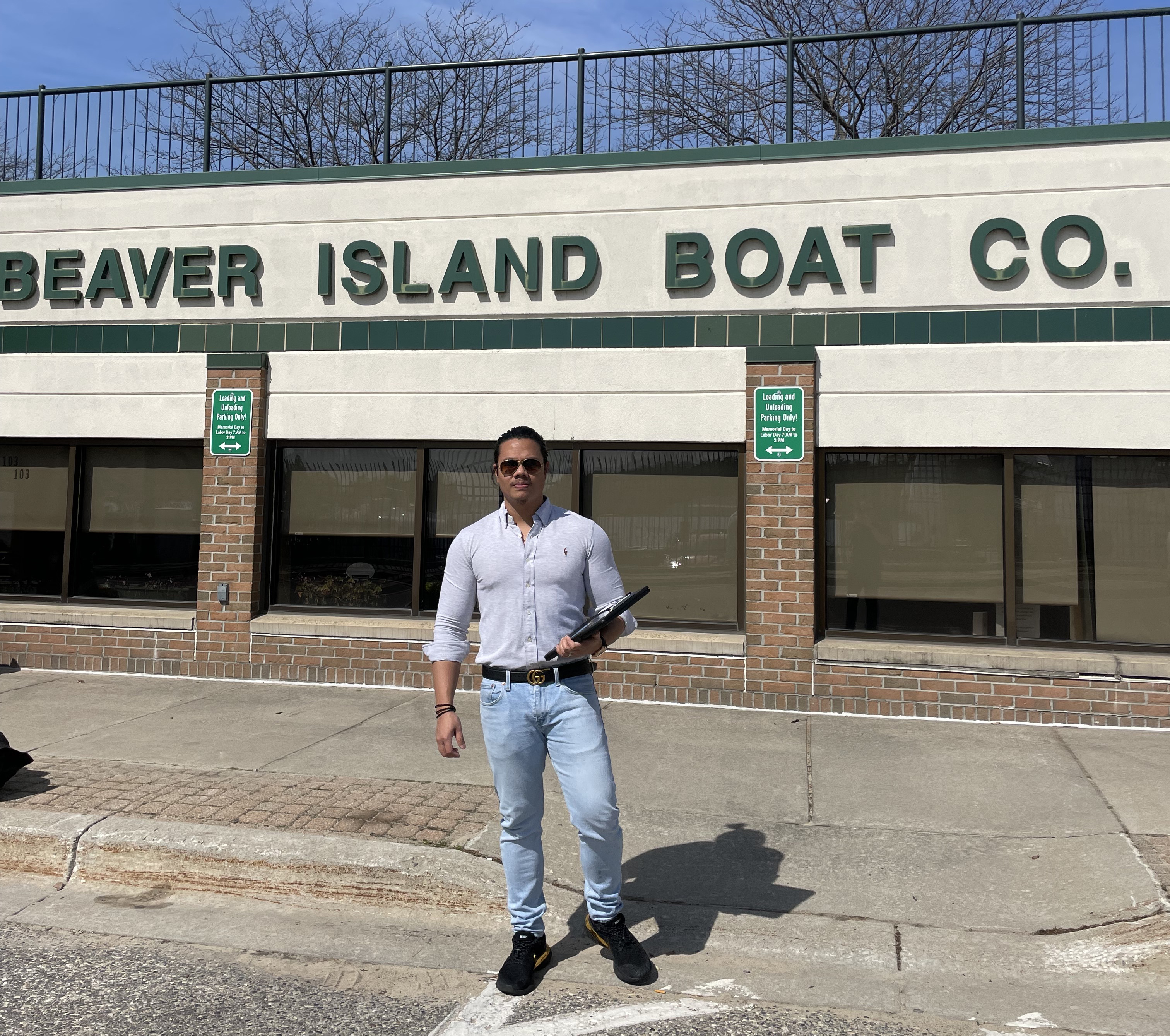Farish Jazlan is a Ph.D. student in the Department of Civil and Environmental Engineering, specializing in public policy. Mobility research on some of Michigan’s larger islands earned him MSU’s 2024 Graduate Student Award for Community Engagement. His Ph.D. adviser is CEE Associate Professor Ali Zockaie. The notion of "Spartans Will” is a phrase that resonates deeply with me. It is a reminder that my work is a call to action - a pledge to engage with the community around us in meaningful, transformative ways. I took heed of that Spartan spirit.
As a graduate student in MSU’s College of Engineering, I leveraged a Michigan Department of Transportation grant to identify mobility gaps for residents who live on some of Michigan’s largest islands: Beaver, Drummond, Neebish and Sugar Islands.
I was honored that the research, conducted from January 2021 to June 2023, was recognized for Community-Engaged Service and Practice during this year’s MSU Outreach and Engagement Awards ceremony.
The research was underpinned by a simple yet profound belief that everyone deserves equal access to mobility, healthcare, economic opportunities, and emergency services, regardless of where they live. I sought to highlight the distinctive nature between the need for an equal policy versus an equitable policy.
I proactively engaged with ferry operators, ferry riders, business owners, property owners, tribal communities, and broader island communities where these forged partnerships were the groundwork for our policy proposals. The project covered a wide latitude to derive meaningful policy and fiscal governance recommendations for state authorities and policymakers.
I came to recognize that not all aspects, particularly those related to human livelihood and welfare, can - or indeed, should - be reduced to mere figures. Quantitative analysis ought to be considered alongside qualitative insights. This, I firmly believe, is a crucial perspective for engineers and policymakers alike to embrace early in their careers.
This project also reinforced an ethos I embodied: Spartan Engineers are habitually driven to effectuate meaningful changes within Michigan communities and, by extension, the global community at large.
From waterways to highways, Spartan Engineers should always aspire to push the research envelope. Making change is a process, not a one-off event.
If you’d like to find out more, a full report on the research was published by MDOT and is also available on the U.S. Department of Transportation’s National Repository

